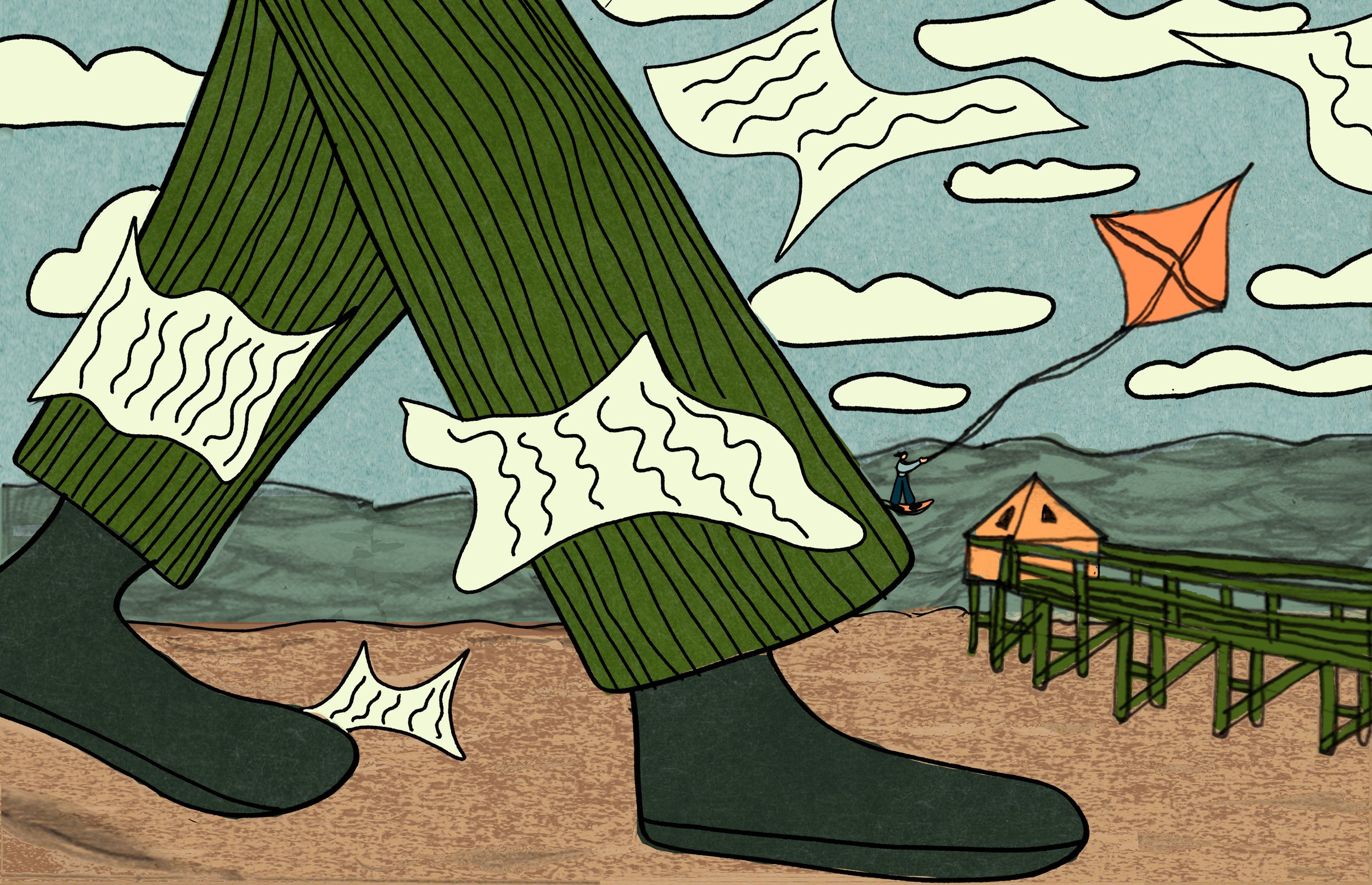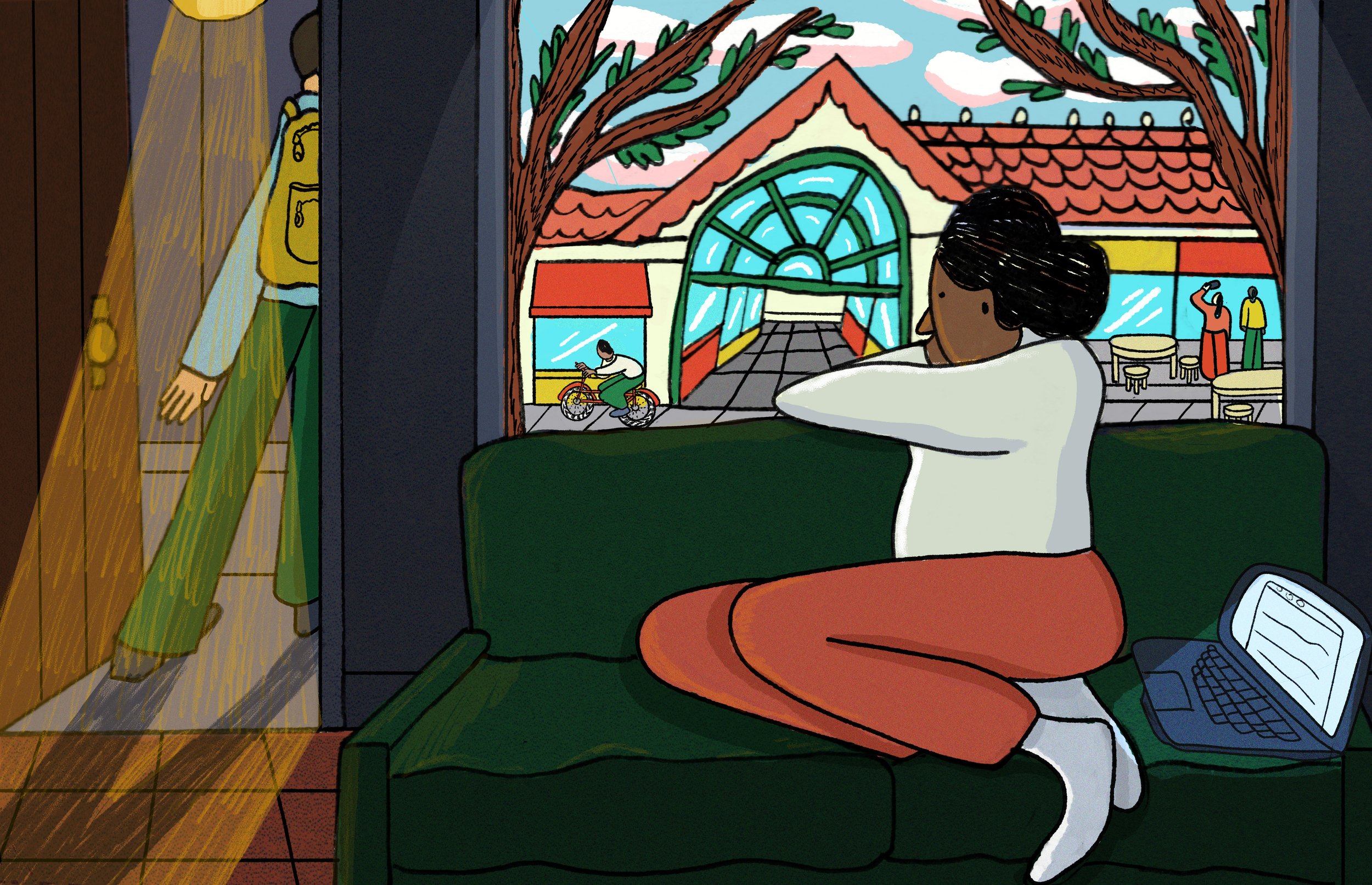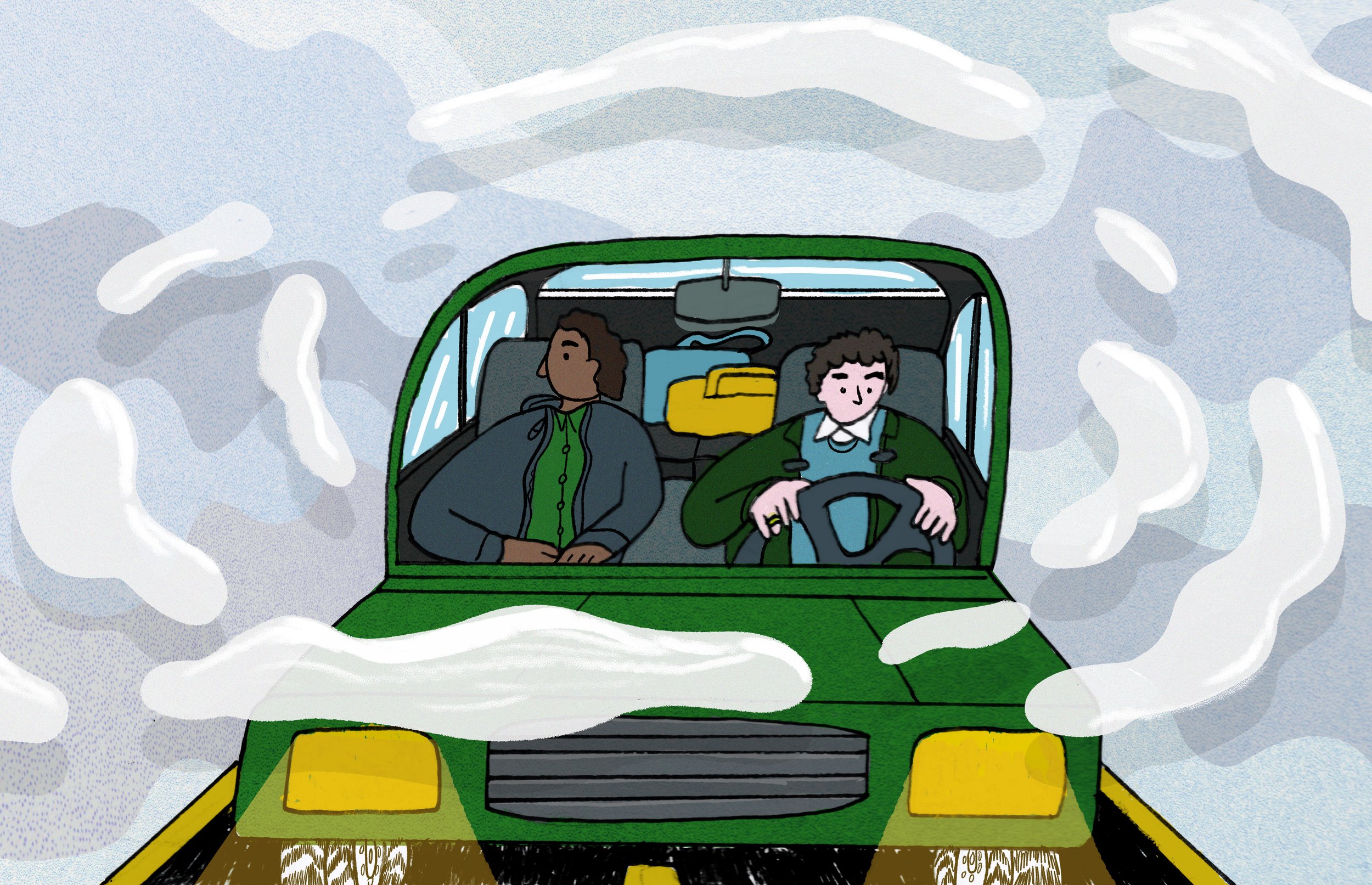4 p.m. at Sankt Peter-Ording

4 p.m. at Sankt Peter-Ording is low tide, the waves a distant line of froth on the pale horizon. The grey North German beach sweeps towards the skyline, speckled with tiny cockle shells and long glinting razor clams that reflect the dull white light. There are a few hardy dog walkers around, braced against the weather. Their dogs are running free in the wide open space. Behind me: ragged dunes and a solid dyke with a tar-sealed cycle path on top.
The wind is cold and strong; it’s been gale force the last two days. It whips sand across the beach in trails and hurls itself at my chest. When I turn away, it pushes at my back. So strong, it almost feels like I could lie back on it: a soft, buffeting pillow.
I’m here alone. I showed my kids where I was going before I left from Hamburg on the train. We looked at the map: There. North, then to the west. To the North Sea, not the Baltic. North Germany has two sea coasts: the west is wind-washed, with an epic intertidal area called the Wadden Sea. The eastern, Baltic side is placid: no coastal waves, just cold, clear waters and stony beaches.
Right now, the North Sea is just the sound of muffled waves and that distant line of white, pulled back so far it would take fifteen minutes to walk out to the water. During the evening, it will creep quickly across the sand, fast and flowing, picking up the razor clams and swirling them in small, foamy waves.
As I walk the beach this afternoon, I’m thinking about my protagonist. I’m here to write, and to have a three-day break from the clamour of the domestic, the everyday noise, the needs of everyone else. There’s sand in my hair and all the other noises have stopped—school, kids, emails, cooking.
My novel’s protagonist is a younger version of me. Twenty years younger. I’m protective of her. How do I write it to feel real? I need to feel her in my bones. I need to remember how it feels to be 25. So adult and opinionated, but so unsure and self-conscious, too. I don’t think I’ve shed all of that, entirely.
Out above the water, a kite surfer dressed in a full, black wetsuit is somersaulting. He tries and tries but he can’t stick the landing. He lands sideways, flailing. It looks painful and very cold. He tries again—flips two, three times. Again, flubs the landing. The dogs bark madly, as though the wind has unleashed something primal, hysterical in them.
The wind carries the sand over to the fields in the village. It's almost spring, and in the garden of my small cottage the daffodils have exploded under a stark, leafless fruit tree. My family will arrive tomorrow evening and I have one more day to imagine that younger self before the clamour starts again.
The relentless wind is hurrying me home, buffeting and pushing me towards the narrow steps up over the dyke, pushing me back to write, write, write. The white light is beginning to turn, to soften and grey. The tide line looks a little closer now. It will march here in the dark, with only the cold North Sea wind to see it nibble at the feet of the dunes.
About the Author
Michaela Anchan is a New Zealander based in Hamburg, Germany, with an MFA in Writing from Vermont College. Her essays and poetry have appeared in Takahe, Hamilton Arts and Letters and World Literature in Translation, among others. You can find her on Instagram at @m.anchan.writer.
Illustration by Jane Demarest.
Edited by Aube Rey Lescure.











